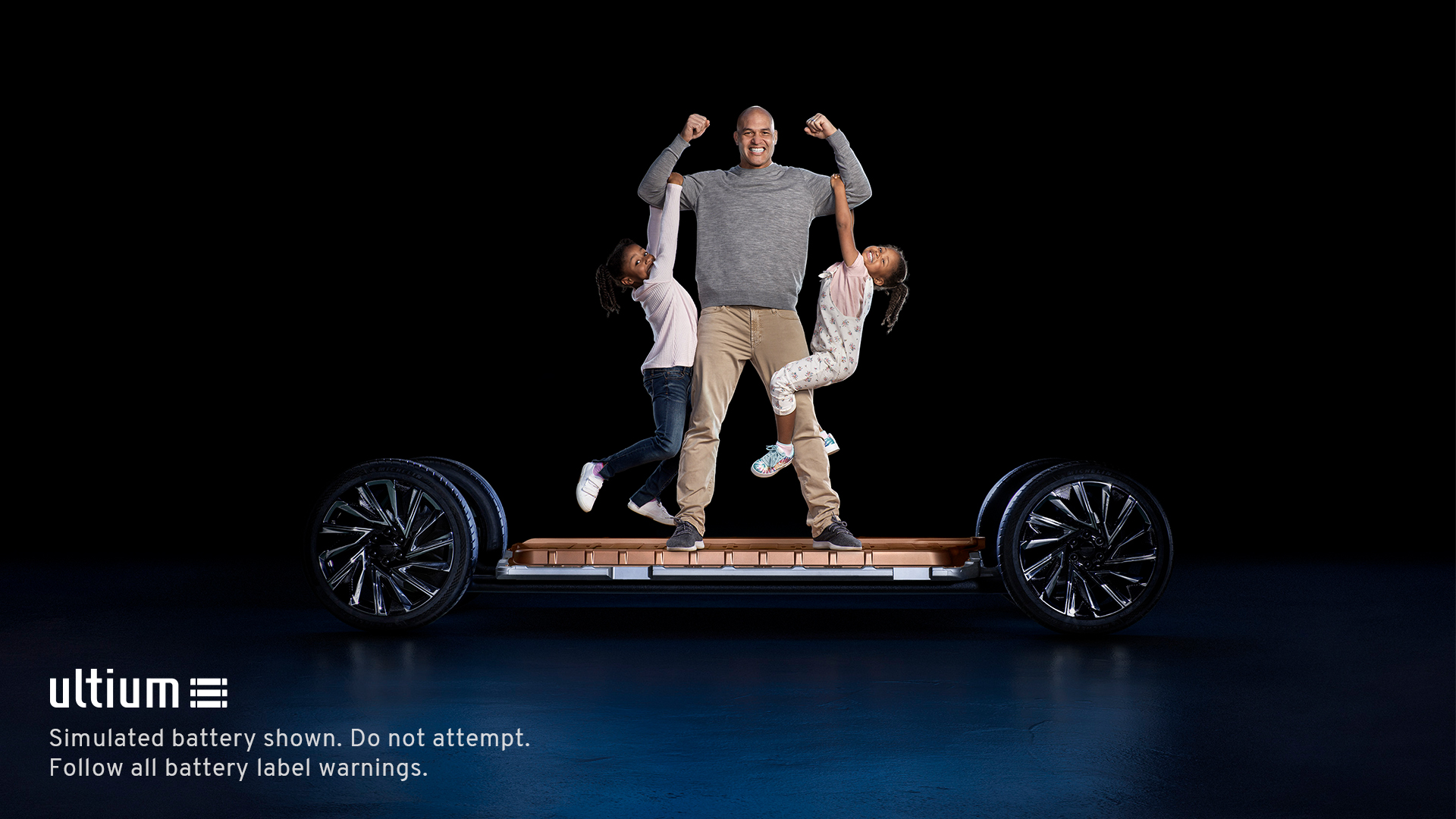| | | | | | | Presented By General Motors | | | | Axios What's Next | | By Bryan Walsh, Joann Muller and Erica Pandey ·Jul 14, 2021 | | Today we're reporting on robot Olympic staff, AI researchers for hire and a better car than any of us will ever own. "What was next" trivia: On this day in 1881, what notorious Western outlaw met his bloody end in New Mexico? Today's Smart Brevity count: 1,206 words ... 4.5 minutes. | | | | | | 1 big thing: The robot Olympics |  | | | Photo illustration: Sarah Grillo/Axios. Photos: Courtesy Toyota | | | | With no spectators allowed at the Tokyo Olympics, robots might be the only ones on hand to witness the athletic feats at this year's Summer Games, writes Joann Muller. Why it matters: Organizers had billed the 2020 Olympics as "the most innovative ever," with plans to deploy teams of robots to assist and dazzle visiting athletes and fans. - While some robots will still provide assistance on-site at the postponed Games, COVID-19 has ensured there will be far fewer humans around to impress.
Driving the news: Tokyo entered a new state of emergency this week, less than two weeks before the start of the Olympics as it seeks to stem a rise in COVID-19 cases. - International in-person spectators were banned months ago and then last week, organizers said even Japanese fans would have to watch the Games on TV.
For the robots, though, this could be their moment to shine. - Lifelike mascot robots, Miraitowa and Someity, might not be able to give as many high fives and handshakes as planned. But they can still show their enthusiasm by reacting to each other's actions and changing their facial expressions.
- And Toyota's T-TR2 telepresence robot, equipped with a camera atop a life-size video display, will allow people to connect from remote locations. (It already enabled an Olympic torchbearer to join the Torch Relay remotely from a hospital.)
- Field support robots similar to the automated vehicles Toyota uses to carry auto parts in its factories will help retrieve the discus and javelin at track and field events.
- Olympic staff will use Panasonic's "power-assist suits" backstage at the venues and Olympic Village to unload and transport heavy objects. The exoskeletal suits support the back and hip area, making loads 20% easier to lift.
The big picture: Japan is a global leader in robotic technology, and the Games were meant to be a chance to showcase that expertise to the world while demonstrating robots' potential for wider application in everyday life. - The Games were also to be a big moment for Toyota, a major worldwide Olympics sponsor, which planned to roll out fleets of robots and automated vehicles to highlight its transformation from a car company to a "mobility company" that gives people the freedom to move physically — and virtually.
The postponement in 2020 did have a silver lining for Miraitowa and Someity, the mascot robots, however. Developers used the extra year to make them even more lifelike. Read the rest. |     | | | | | | 2. Text-reading AI will do your research for you |  | | | Illustration: Sarah Grillo/Axios | | | | The startup Primer is offering natural language processing (NLP) models for businesses that can rapidly read and analyze written text of all kinds, writes Bryan Walsh. Why it matters: NLP — machine-learning agents that comprehend and even write text — is one of the most exciting areas of AI research, and the new product points to a future when text-crunching AI will be available as a service, accelerating the technology's adoption. How it works: Primer NLP Engines are pre-trained NLP models that can read and summarize long bodies of text, pulling out key concepts, recognizing and identifying individuals who might be mentioned, and identifying patterns and structures that might elude human readers. - For instance, a financial company might use Primer Engine to read masses of 10K regulatory filings, "with the aim of identifying all of the companies that have increasing competitive risk exposure to China," says Sean Gourley, Primer's CEO.
What they're saying: "We're in the middle of a revolution with natural language processing right now," says Gourley. "That means a bunch of the reading and writing tasks that would have been done by humans can now be done by machines." Between the lines: More important than the technical advances here are the business ones that will contribute to the spread of NLP applications. - Before, these kinds of NLP models "were done in a bespoke way by internal data science teams," says Gourley. "But now just as individual compute has been replaced by cloud computing, we can do the same thing with natural language processing."
Read the rest. |     | | | | | | 3. Hospitals sue surgical robot maker |  | | | Illustration: Aïda Amer/Axios | | | | Hospitals have mounted a legal battle against the company that makes the da Vinci surgical robot, alleging the company forces them to buy its maintenance services and replacement parts at inflated prices even though cheaper options exist, writes Bob Herman. Driving the news: In one allegation, a hospital says Intuitive Surgical remotely shut down a hospital's surgical robot "in the middle of a procedure," which forced the surgeon "to convert the procedure to open surgery with the patient on the operating table," after the hospital said it was considering a service contract with a third party. The big picture: Intuitive Surgical makes the da Vinci surgical robot, and sells them to hospitals for anywhere from $500,000 to $2.5 million each. - But a majority of Intuitive Surgical's $4 billion of annual revenue comes from instruments, accessories and service contracts that are needed to keep the robots operating.
Where things stand: Franciscan Health, headquartered in Indiana; Valley Medical Center in Washington, and Kaleida Health in New York filed class-action lawsuits. - They claim Intuitive Surgical has a monopoly on minimally invasive surgical robots, which gives the company a "near-stranglehold" on the market for all the parts and services the robots need after hospitals buy them.
A spokesperson said Intuitive Surgical will not comment on the lawsuits. Go deeper. |     | | | | | | A message from General Motors | | An EV for everyone | | |  | | | | General Motors is adding 30 new electric vehicles and producing the revolutionary Ultium Platform. The background: This is made possible by a $35 billion investment in EVs and AVs through 2025 to make the all-electric future accessible for everyone. | | | | | | 4. A nation of video gamers |  | | | Illustration: Sarah Grillo/Axios | | | | 227 million is the estimated number of Americans who play video games, which means in the U.S. you're now more likely to be a gamer than not, writes Bryan. By the numbers: According to the annual Entertainment Software Association Survey, the number of estimated gamers is up 13 million from last year — not surprising given how many people spent their pandemic burning hundreds of hours on Nintendo's "Animal Crossing." - The average age of the American gamer is 31, and they're more likely than the general population to be male and white.
- 74% of parents reported gaming with their children, which would definitely come as a shock to my 9-year-old, "Bionic Commando"-playing self.
Read more from Axios' Stephen Totilo, and sign up for the weekday Axios Gaming newsletter here. |     | | | | | | 5. What's next: An iconic Mercedes for the modern era |  | | | The iconic Mercedes 300 SL Roadster, along with its high-tech successor, coming in 2022. Photo: Courtesy of Mercedes-Benz | | | | Feast your eyes on this iconic 300 SL Roadster, produced from 1957 to 1963, and the upcoming 2022 Mercedes-AMG SL, writes Joann. Why it matters: The SL was one of the most famous automotive design icons in history. Creating a modern interpretation of that classic interior is a challenge when everything runs via computer. What they did: For the new-generation SL, Mercedes designers created a mix of analog geometry and digital technology — what they call "hyperanalog." - One example: The digital instrument cluster's 12.3-inch screen is integrated into a 3-D visor in front of the driver.
- The position of the 12-inch touchscreen on the center console can be adjusted electronically to prevent reflections from the sun.
What they're saying: "The SL is an icon ... that has stood for automotive fascination and desire for decades," said Gorden Wagener, chief design officer for Mercedes' parent company, Daimler Group. - It's "a great opportunity and challenge for design, because every designer wants to create icons."
- "The result is a revolutionary interior experience caught between digital and analog luxury. We created the most iconic SL ever since — the luxury icon of the 2020s."
Share this story. |     | | | | | | A message from General Motors | | An EV for everyone | | |  | | | | General Motors is adding 30 new electric vehicles and producing the revolutionary Ultium Platform. The background: This is made possible by a $35 billion investment in EVs and AVs through 2025 to make the all-electric future accessible for everyone. | | |  | | It'll help you deliver employee communications more effectively. | | | | | | Axios thanks our partners for supporting our newsletters. If you're interested in advertising, learn more here.
Sponsorship has no influence on editorial content. Axios, 3100 Clarendon Blvd, Suite 1300, Arlington VA 22201 | | | You received this email because you signed up for newsletters from Axios.
Change your preferences or unsubscribe here. | | | Was this email forwarded to you?
Sign up now to get Axios in your inbox. | | | | Follow Axios on social media:    | | | | | |









No comments:
Post a Comment